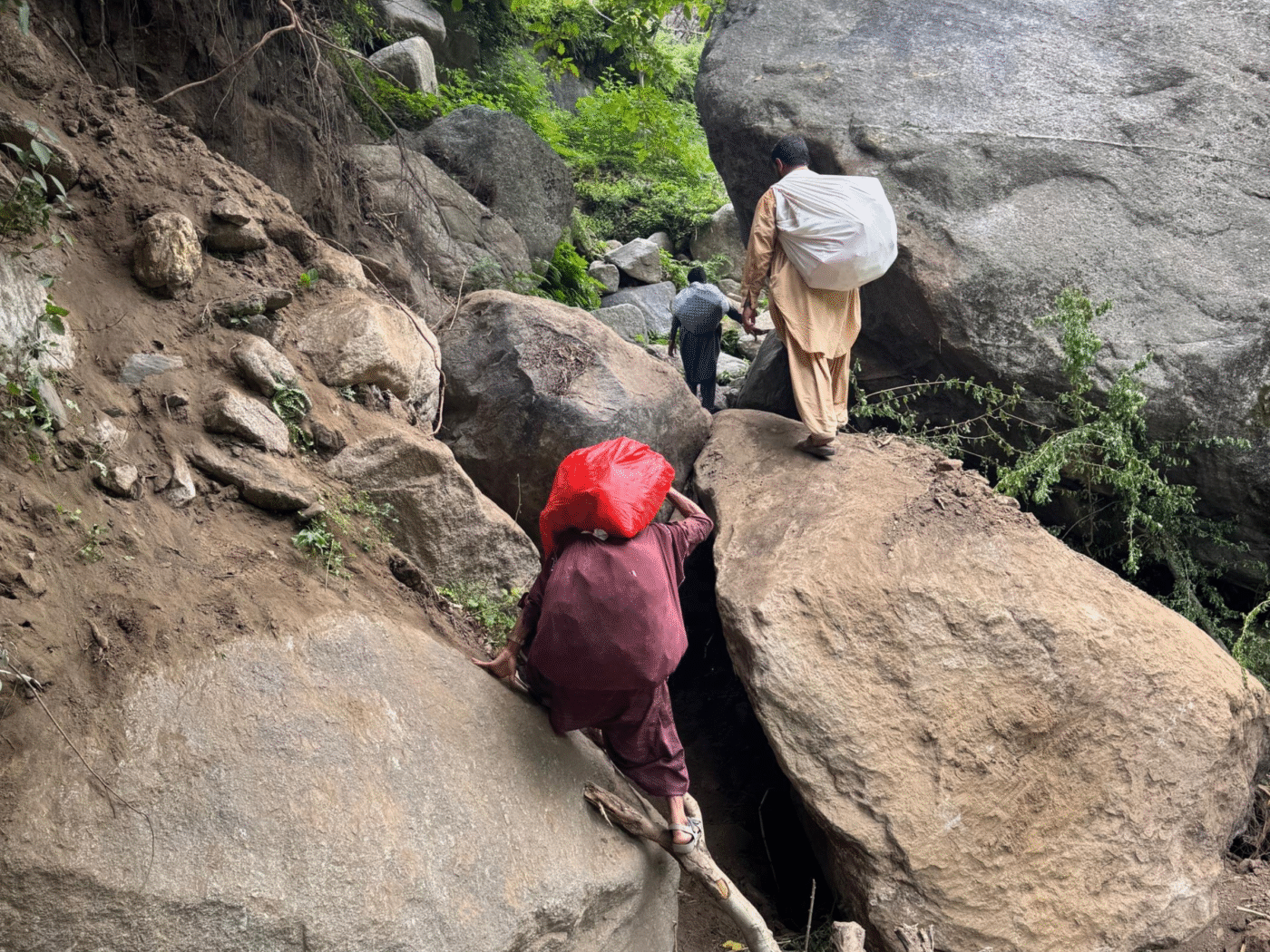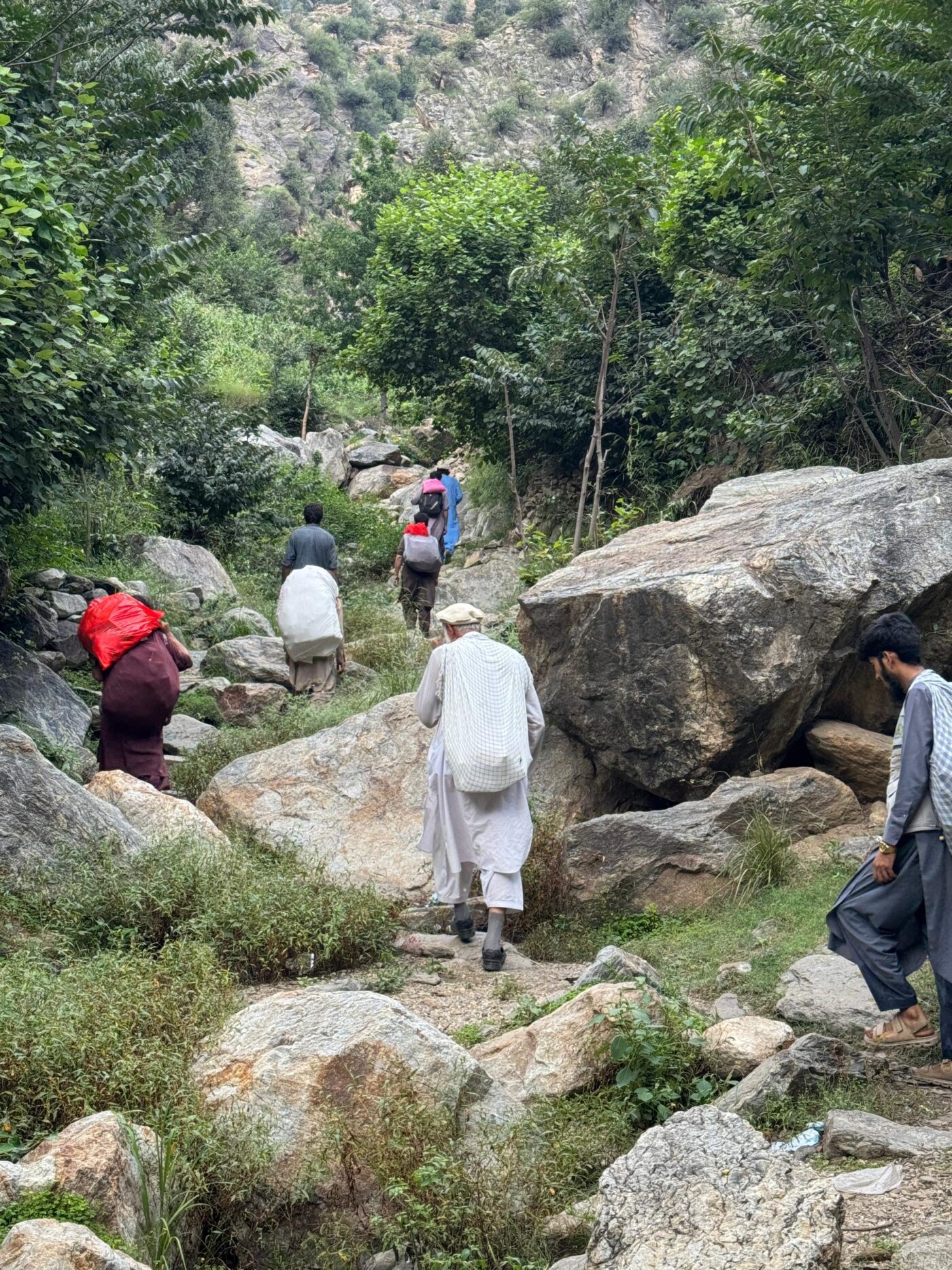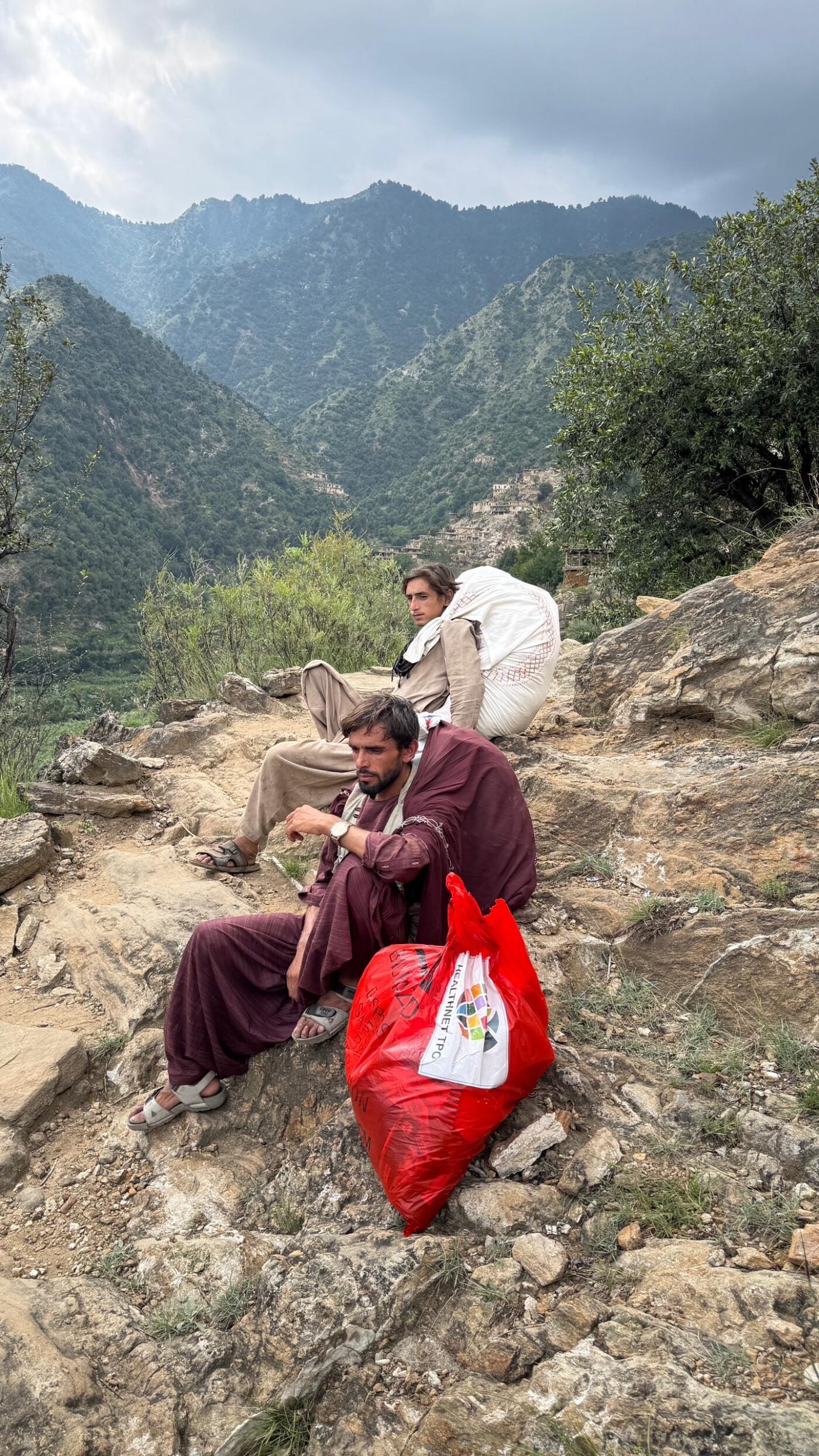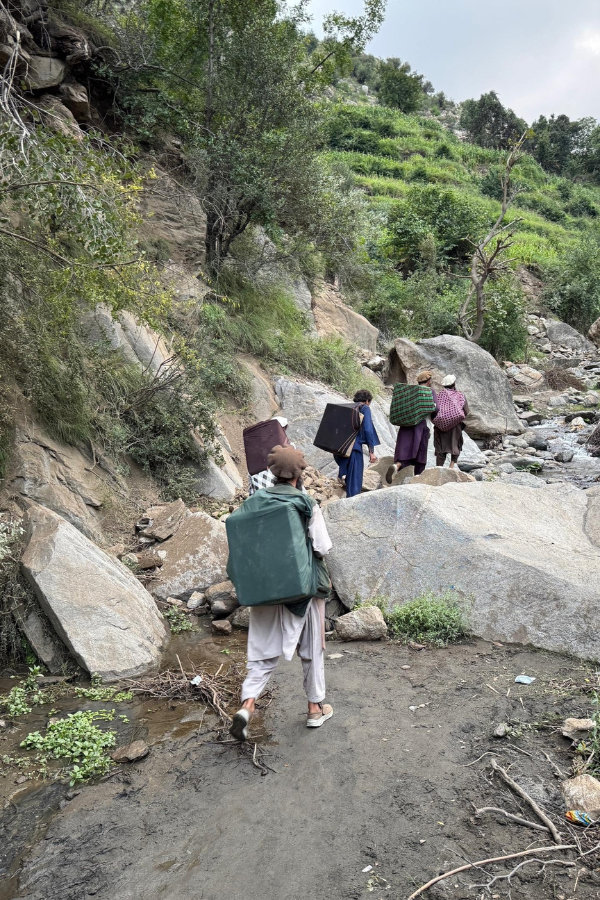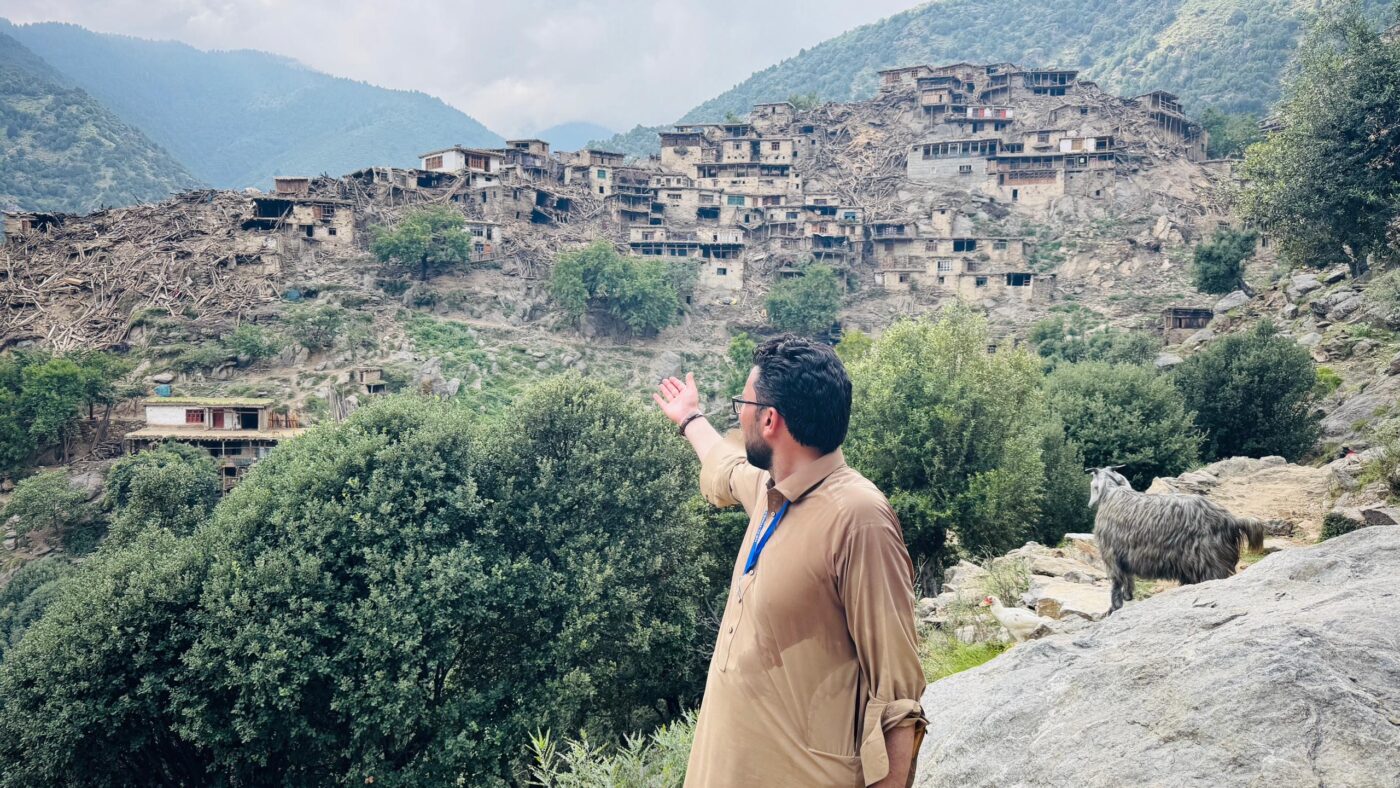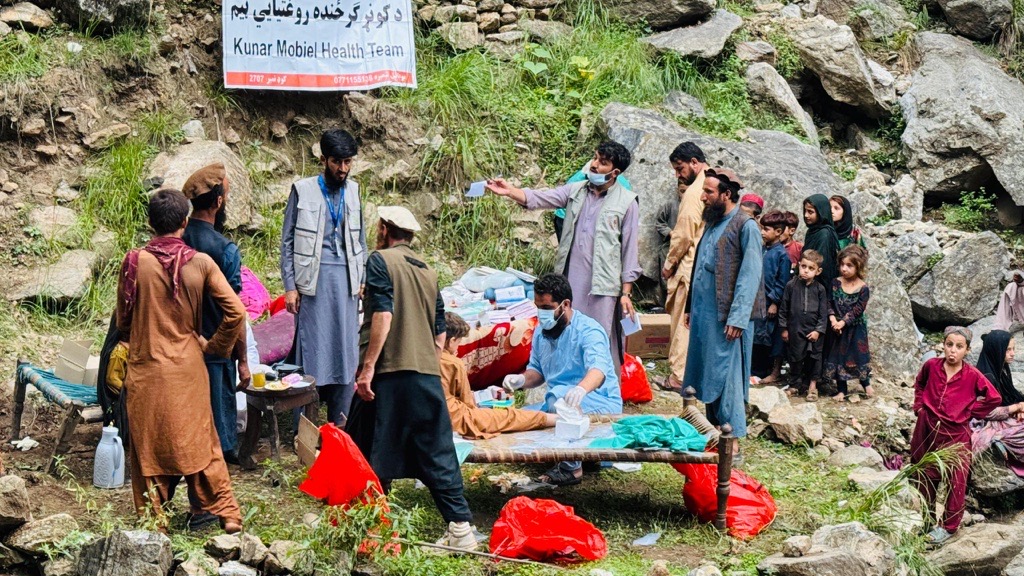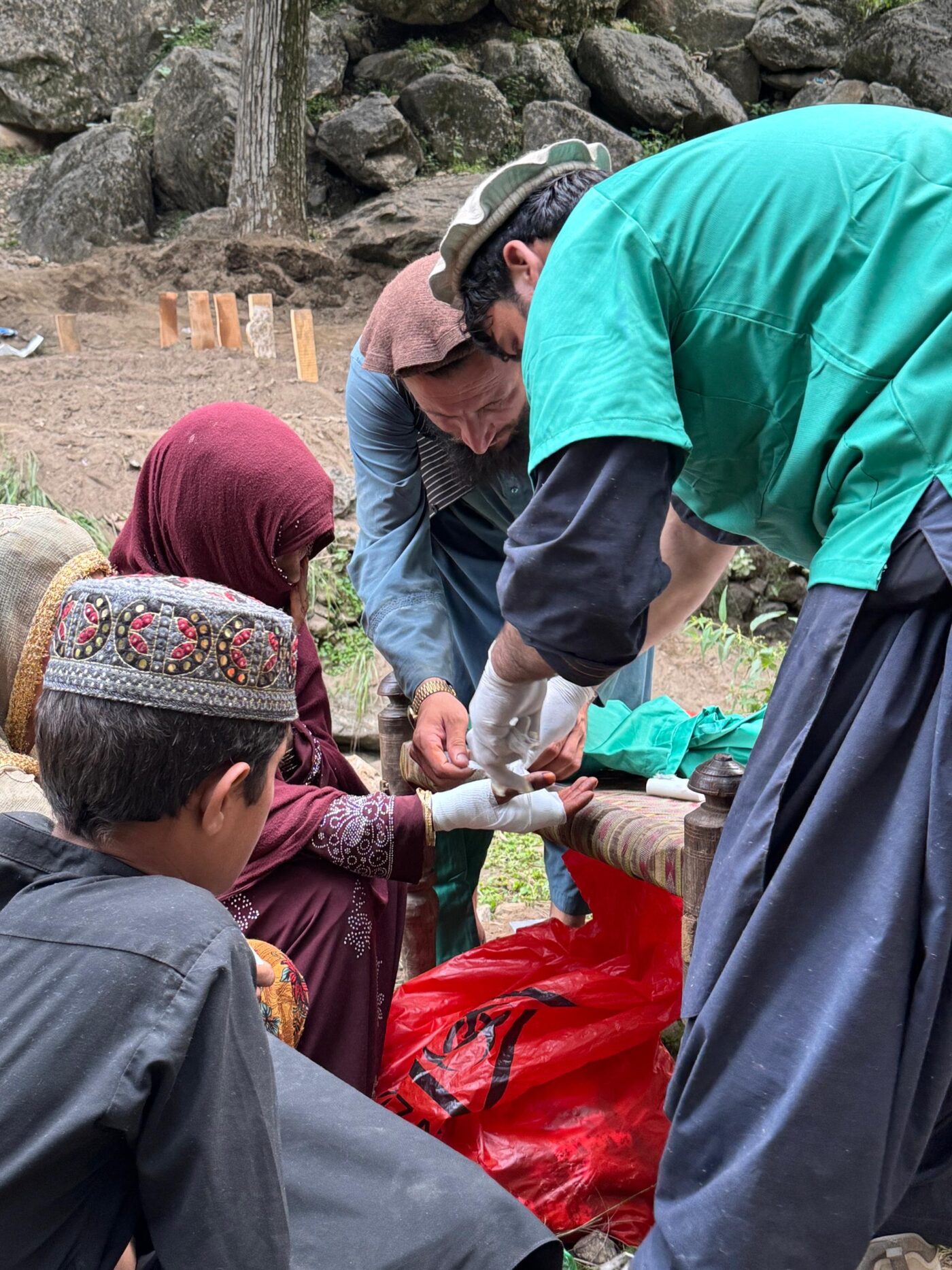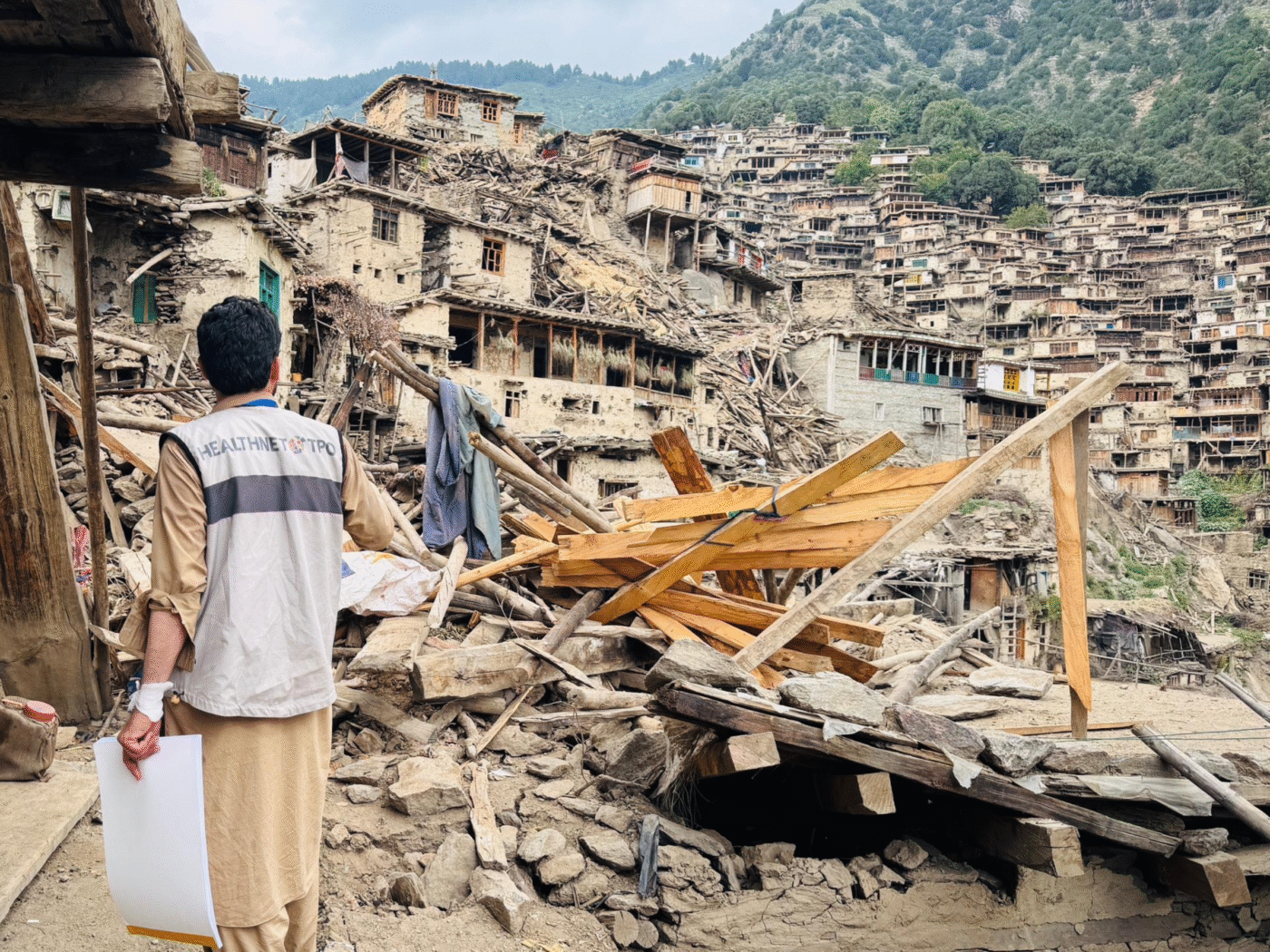On 31 August, a devastating earthquake struck eastern Afghanistan, leaving thousands of families without shelter, food, or access to healthcare. The disaster has claimed more than 2,200 lives, and entire villages were cut off from the outside world as roads were destroyed and even air support failed to reach some of the most affected areas. Among these was Arit Valley in Kunar province, home to approximately 10,500 people, where communities in villages such as Ghundai, Loy, Salambat, Danesbat, Kanda, Bara Kanda, and Oshan Kanarak had been unreachable for days.
What follows is the testimony of Dr. Shahid, Quality Improvement Manager for HealthNet TPO Afghanistan. His words were translated from Pashtun by Ahmad Saleem Saha, Communications Manager for HealthNet TPO Afghanistan.


